ETH News
All stories that have been tagged with Particle physics
An alternative way to manipulate quantum states
News
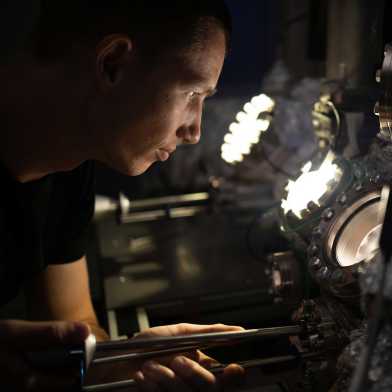
Researchers at ETH Zurich have shown that quantum states of single electron spins can be controlled by currents of electrons whose spins are evenly aligned. In the future, this method could be used in electronic circuit elements.
A new kind of magnetism
News

ETH Zurich researchers have detected a new type of magnetism in an artificially produced material. The material becomes ferromagnetic through minimization of the kinetic energy of its electrons.
Two projects launched to connect error-corrected qubits
News
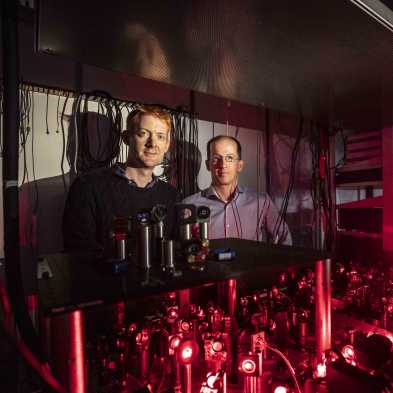
ETH Zurich is participating in two quantum computing projects that are being financed by IARPA, the US research funding agency, with up to 40 million dollars. Both projects aim to connect two error-corrected qubits with one another and thus lay the foundation for future quantum computers.
A contradiction at the heart of physics
Globe magazine

Quantum mechanics describes the forces that hold the world together on the smallest scale. The theory of relativity explains the world at the cosmic level. The two seem incompatible – and a unifying theory is nowhere in sight.
"I have goose bumps"
News

On 11 July, NASA published the first image taken by the James Webb Space Telescope. ETH Zurich Astrophysicist, Adrian Glauser was also involved in the construction of one of the telescope's measuring instruments. In an interview, he explains what he thought and felt when he saw the image.
“Science is fun”
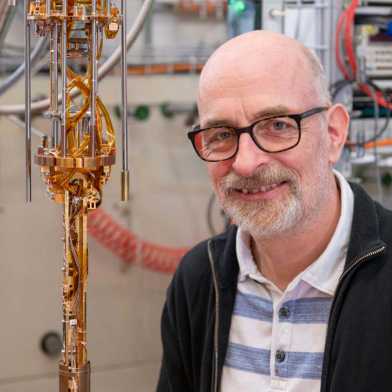
What the “Night of Physics” really aims to do is make physics accessible to a broad audience in a way that’s entertaining. This event will be held on 17 June. Klaus Ensslin, Professor of Physics and co-initiator of the event, explains why it’s worth coming along to the Hönggerberg campus.
Tunable quantum traps for excitons
News
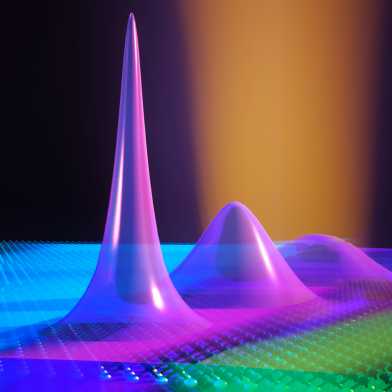
Researchers at ETH Zurich have succeeded for the first time in trapping excitons - quasiparticles consisting of negatively charged electrons and positively charged holes – in a semiconductor material using controllable electric fields. The new technique is important for creating single photon sources as well as for basic research.
Individual funding is history
Press release

Four researchers from ETH Zurich have been awarded a Consolidator Grant from the European Research Council (ERC). Since Switzerland is no longer fully associated, they will receive the approximately eight million francs in research funding from the State Secretariat for Education, Research and Innovation (SERI).
A crystal made of electrons
News
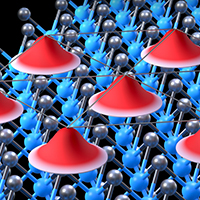
Researchers at ETH Zurich have succeeded in observing a crystal that consists only of electrons. Such Wigner crystals were already predicted almost ninety years ago but could only now be observed directly in a semiconductor material.
ETH Zurich and PSI found Quantum Computing Hub
Press release

ETH Zurich and the Paul Scherrer Institute (PSI) establish a joint centre for the development of quantum computers. Its aim is to advance the realization of quantum computers based on both ion traps and superconducting components. ETH Zurich provides 32 million francs for this centre, which will host around 30 researchers.
Two strange planets
News
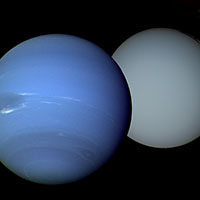
Uranus and Neptune both have a completely skewed magnetic field, perhaps due to the planets’ special inner structures. But new experiments by ETH Zurich researchers now show that the mystery remains unsolved.
Size of helium nucleus measured more precisely than ever before
News
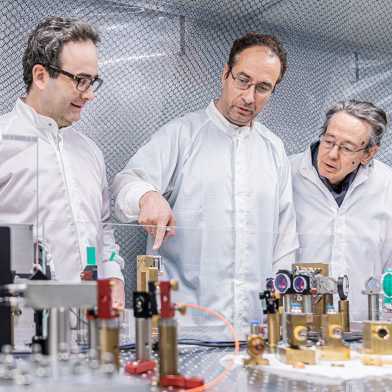
In experiments at the Paul Scherrer Institute PSI, an international research collaboration with ETH Zurich involvement has measured the radius of the atomic nucleus of helium five times more precisely than ever before. With the aid of the new value, fundamental physical theories can be tested.
Raising the profile of quantum research
News
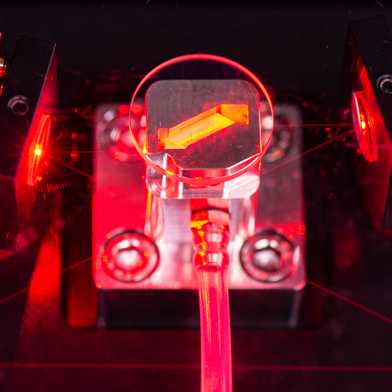
Quantum research has long since ceased to be an exclusive domain of physics. The purpose of the new ETH Quantum Center is to ensure ETH Zurich’s various competences and activities in this area are networked even more closely and to raise their public profile.
The gravity of dreams
News

Why is gravity the most mysterious force of nature? Lavinia Heisenberg studies how the universe was formed, and how it is changing. She has now been awarded the ETH Zurich Latsis Prize for her outstanding achievements in the field of theoretical physics.
Outstanding synergies in quantum research
Press release
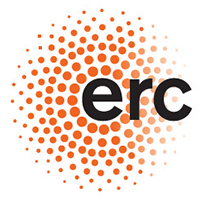
Two research projects with ETH Zurich involvement have been awarded one of the highly coveted ERC Synergy Grants. These EU grants aim to promote pioneering research that is only possible through the synergy of several teams. More than EUR 26 million will now be made available for the two projects.
Tracking down the mystery of matter
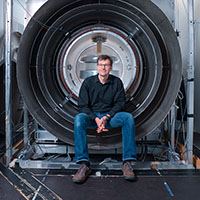
A complex research experiment lasting several years shows that the electric dipole moment of the neutron is significantly smaller than previously assumed. It has thus become less likely that the existence of matter in the universe can be explained by precisely this dipole moment.
Twinkle, twinkle little stars…

Astronomers capture images revealing a turbulent stellar relationship in the binary star system R Aquarii, 650 light years from Earth.
Banknote to illustrate basic research
News

Today, the ATLAS and CMS collaborations both announced new findings on the Higgs boson from experiments undertaken at CERN’s Large Hadron Collider (LHC) – shortly after the Swiss National Bank’s release of its new 200 franc note with particle physics in pride of place. ETH professor Günther Dissertori played an instrumental role in both projects.
New scanner could provide earlier diagnosis of dementia
News
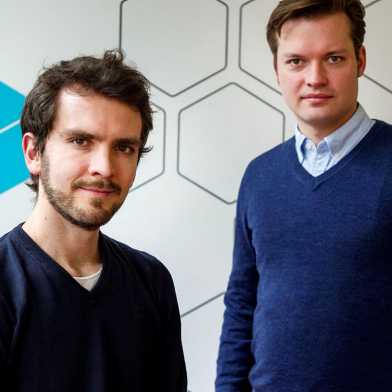
The two ETH particle physicists Jannis Fischer and Max Ahnen are building a brain scanner that is ten times less expensive and much smaller than current models. Their ground-breaking work has earned them a place on the 2018 "30 Under 30" list published by the American business magazine Forbes.
A microscope for magnetic atoms
News
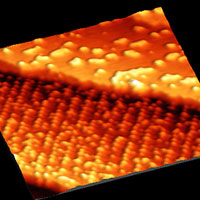
Scanning tunnelling microscopes can make individual atoms of a material visible. Researchers at ETH Zurich have now also measured their magnetization using such a microscope. The new technology could be used in magnetic imaging as well as in magnetic information processing.
From the nucleus to CERN or the colours of freedom in particle physics
News
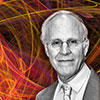
What do the smallest particles locked up in protons have to tell us about how the universe began and how it will end? This week, physics Nobel laureate David Gross will present three public lectures at ETH Zurich on the theme “A Century of Quantum Physics – from Nuclear Physics to String Theory and Beyond”.
A gravity researcher in search of weightlessness
News

Lavinia Heisenberg is a theoretical physicist. She is reluctant to accept that General Relativity can be used to describe the universe only on the assumption of exotic materials and energy sources. Her goal is thus to update Einstein’s theory.
High voltage for tomorrow's particle accelerator
News
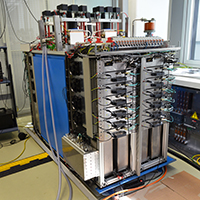
On behalf of CERN, researchers at ETH Zurich have developed a high-tech device for the production of extremely precise, high voltage pulses that could be used in the next generation of particle accelerators.
Persistent and curious
News
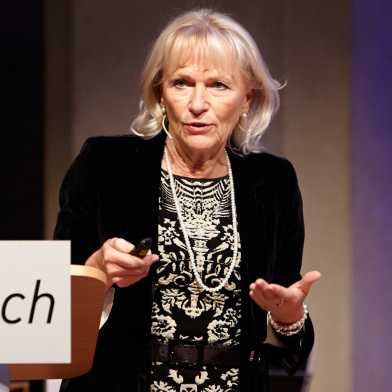
As Professor of Particle Physics, Felicitas Pauss played a key role in the discovery of the Higgs boson. Tomorrow, she will be honoured with the Richard Ernst Medal.
Spark Award for fundamental research
News
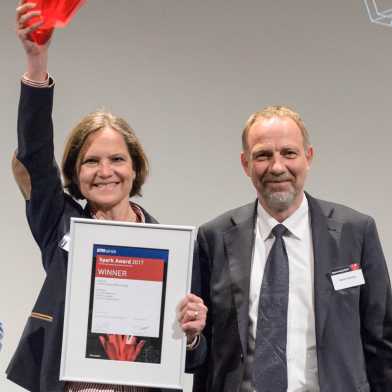
ETH Professor Sabine Werner and her team won the Spark Award 2017 yesterday for their groundbreaking new approach to combating viral diseases. If their results can be confirmed, they could lead to the development of better treatments for viral diseases such as herpes.
Deuteron smaller than thought
News
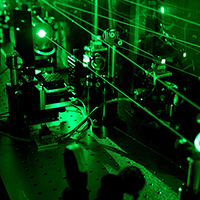
The deuteron — one of the simplest atomic nuclei, consisting of just one proton and one neutron — is considerably smaller than previously thought. This finding was arrived at by an international research group.
Surprising discovery of a new particle
News
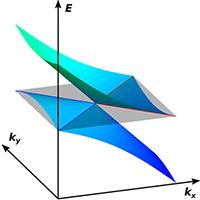
Studying peculiar properties of a long known metallic material researchers have chanced upon a new particle. It is related to the so-called Weyl fermions that the mathematician Hermann Weyl predicted almost ninety years ago. Weyl had overlooked the particle, which could have interesting applications in electronics.